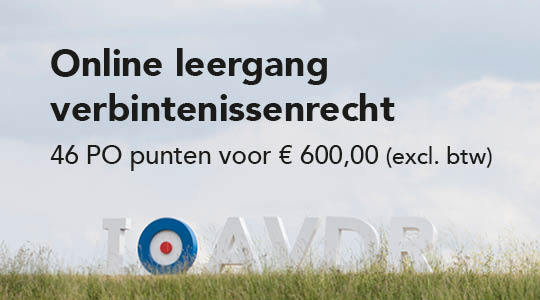ECLI:NL:RBAMS:2020:2406
Datum: 29-04-2020
Onderwerp: Corona
Rechtsgebiedenregister: Verbintenissenrecht, Financieel recht, Insolventierecht
Vindplaats: Avdr.nl
This case is about the two issues discussed below. 1. Whether or not the parties (domiciled in New York and Amsterdam) entered into a EUR 169 million transaction. Dutch law requires offer and acceptance for contract formation, and allows the parties broad leeway as to how they communicate what may or may not be construed as an offer or acceptance. The standard is not what the parties may have thought, or meant to say. It is what a reasonable person in the same circumstances would have understood their communications to mean. Here, the critical fact is that the defendant did not sign the “Transaction Agreement”. The LOI’s binary mechanism (either execute and deliver the paperwork for the Transaction Agreement by the agreed date, or pay a EUR 30 million fee) may not be an absolute formal requirement for contract formation, but it has significant evidentiary weight. In M&A practice, which the parties are thoroughly familiar with, this sets a high bar for there to be any agreement through other channels. The communications relied on by claimant do not clear that bar. There is not a sufficient factual basis to attribute the advisers’ statements or conduct to the defendant, since there is nothing to suggest that the defendant itself said or did anything to communicate to the claimant that the advisers would be handling everything, including entering into the agreement. The Court finds that there is not a sufficient likelihood of success on the merits so as to justify an interim measure ordering the defendant to perform its obligations under the Transaction Agreement (payment of EUR 169 million and take the claimant’s 50% stake in an equestrian show-jumping business). 2. Whether there any compelling reasons to modify or mitigate the fee. As to the alternative claim, the contract (LOI) is not in dispute. The issue is whether the Court should enforce the EUR 30 million fee against Tennor in the current COVID-19 circumstances, or whether the fee’s effects should be modified, mitigated or reduced in some way, or whether the fee agreement should be dissolved. The claimant relies on three Articles: Articles 6:94, 6:248 and 6:258 of the Dutch Civil Code (DCC). Under all three Articles, the courts must exercise caution. Contracts must generally be enforced as agreed. The parties’ autonomy is paramount. The courts’ attitude is deferential. To express these concepts, all three Articles use language stating, essentially, that interference by the courts in the contract’s operation is allowed only to avoid an “unacceptable” impact, as assessed under standards of “reasonableness and fairness”. There is no well-established case law on COVID-19. However, commentators have provided guidance that is very helpful to think through the issues. The “share the pain” approach advocated by Professor Tjittes focuses on preserving the parties’ contractual equilibrium in the current circumstances. This is, in the Court’s analysis, the right way to look at the agreement here. There is no evidence in the record suggesting that the parties contemplated or discussed the full and exceptional impact of the COVID-19 crisis. The crisis may or may not be unprovided for. But there is no need to rule on this issue. Even if the crisis is unprovided for, there is no support in the record for the proposition that the crisis makes it unacceptable for the claimant to demand strict performance by the defendant. The reasons for this conclusion are straightforward. The fee allocates risk and expresses commitment. The fee caps the defendant’s exposure. The harm to the business may be substantial and structural (as the defendant contends), or it may be short-term and minimal (as the claimant insists). Either way, the best “share the pain” solution, to preserve the contractual equilibrium in the agreement, is for the defendant to pay the fee as written. This allocates a defined risk to the defendant, but substantial actual or potential risks are borne by the claimant. If the fee were to be reduced in any business downturn, the fee’s purpose – comfort and confidence to get the deal done – would not be accomplished. The fee would be eviscerated in precisely the circumstances in which the parties intended it to be robust. The Court therefore allows the alternative claim, and orders the defendant to pay the EUR 30 million fee. (Summary in Dutch)In deze zaak draait het om de vraag of er tussen partijen een Transaction Agreement (TA) tot stand gekomen is, en zo niet, of de fee van 30 miljoen euro die in dat geval verschuldigd is, moet worden gewijzigd of verminderd op de voet van artikelen 6:94, 248 of 258 BW vanwege de huidige coronacrisis. De voorzieningenrechter (CSP) van de Netherlands Commercial Court beantwoordt beide vragen ontkennend.Vaststaat dat gedaagde de TA niet heeft ondertekend. Het vereiste van “execute and deliver” in de Letter of Intent (LOI) is onder Nederlands recht weliswaar geen vormvereiste, maar wel belangrijk als bewijsmiddel van het bestaan van een overeenkomst. In de M&A praktijk waarin partijen werkzaam zijn, betekent dit dat er een hoge drempel geldt voor het alsnog aannemen van een overeenkomst op basis van gedrag of uitlatingen van adviseurs van gedaagde. Wat eiseres in dit kader heeft aangedragen, is onvoldoende. Er is geen feitelijke grondslag aanwezig om dit gedrag en deze uitlatingen toe te rekenen aan gedaagde zelf. Daarom is het onvoldoende aannemelijk dat de bodemrechter zal oordelen dat gedaagde haar verplichtingen uit de Transaction Agreement (betalen van 169 miljoen euro en het afnemen van de aandelen) moet nakomen.Tussen partijen is niet in geschil dat zij zijn overeengekomen om bij het niet tekenen van de TA een fee van 30 miljoen Euro te betalen. Gedaagde stelt echter dat de fee moet worden verminderd of gewijzigd vanwege de coronacrisis (zie hiervoor). De voorzieningenrechter volgt haar daar niet in. De coronacrisis is mogelijk een onvoorziene omstandigheid, maar niet van dien aard dat eiseres naar maatstaven van redelijkheid en billijkheid geen ongewijzigde instandhouding van de fee-verplichting mag verwachten. De bedoeling van de fee was om partijen aan te sporen tot het aangaan van de transactie en om risico’s tussen hen te verdelen. De fee beperkt de exposure van partijen. Dat doel zou worden doorkruist, als de fee zou kunnen worden verminderd bij een waardedaling van de target-onderneming. Dat zou het namelijk makkelijker maken om in zo’n geval de transactie niet te doen. Als de situatie van de doelmaatschappij zo slecht is als gedaagde stelt, dan is betaling van de fee een snelle uitweg uit de verplichting tot betaling van de koopprijs van 169 miljoen euro en uit de risico’s die zijn verbonden aan het draaiend houden van de doelmaatschappij. Als de gevolgen van de coronacrisis blijken mee te vallen, lijkt de fee van 30 miljoen euro wellicht hoog, maar dat is wel wat partijen redelijk vonden toen zij afstand deden van hun recht om zich te beroepen op onredelijkheid van de fee. De subsidiaire vordering tot betaling van de fee van 30 miljoen euro wordt daarom toegewezen.


